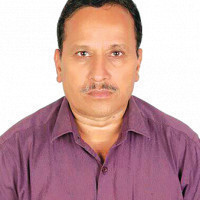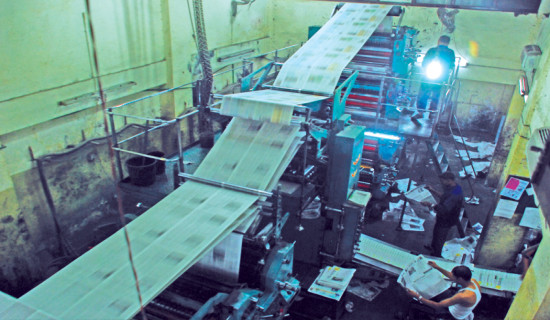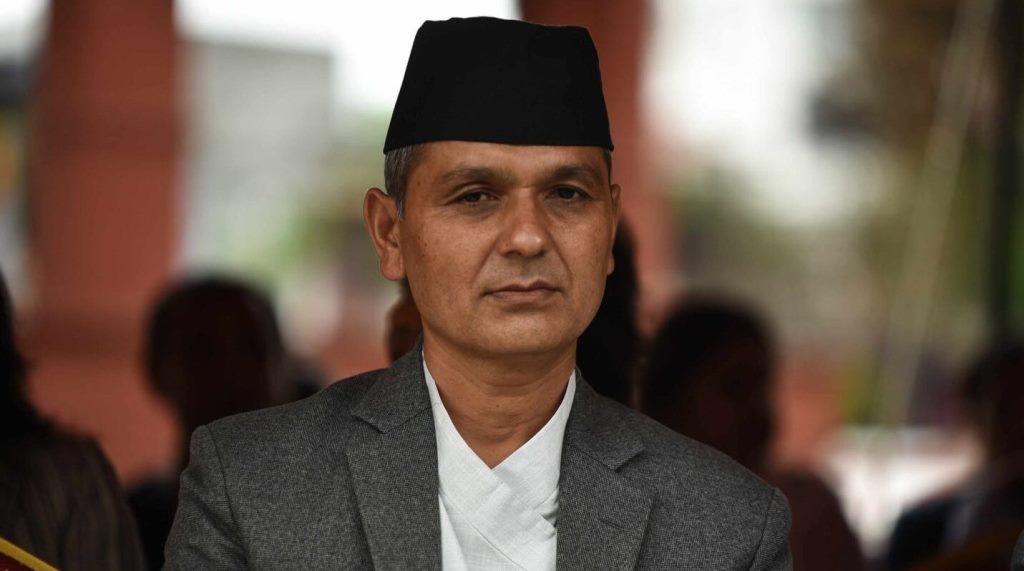- Friday, 28 November 2025
Lessons From Lanka
There is an interesting context in the Ramayana. When Hanuman returned from Lanka, he was asked to describe the place. He explained that Sri Lanka was an exceptionally affluent country. He says, ‘Je Chhan Sunaika’, each and everything is made of gold. The island nation was one of the leading economies in South Asia even until recent past. Now, the country is reeling from economic and political adversities. After running out of foreign reserves, it cannot buy fuel and other essential commodities from overseas. With the collapse of the Mahendra Rajapaksa-led government, and the fleeing of President Gotabaya Rajapaksa to Singapore, Ranil Wickremesinghe has been sworn in as the new President. In this critical situation, the wise people of Sri Lanka will be able to solve the problem for good in the nearest future.
The Holy Basil
Though Ayurvedic doctors and Hindu priests are from entirely different fields, they agree that holy basil plant holds immense medicinal value. They encourage everyone irrespective of any race, caste, religion and belief to consume this commonly available plant as an important herb. No doubt, the Ayurveda is the oldest holistic method of medication developed in the Asian continent thousands years ago. It focuses on maintaining a balance among the mind, body, and spirit. It pleads for the people’s everlasting good health. So, Ayurveda suggests consumption of medicines comparatively for longer period of time. Ayurvedic medicines are made in pests, tablets and in other forms. It may suggest consuming herbs and shrubs directly as well. Among herbs and shrubs, the holy basil has a prominent place in Ayurveda.
A Risk-taking Lot
It is a common assumption that the farmers are simple and meek, who follow the instructions issued by concerned authorities. But, seeing their strong decision on selecting paddy seeds that are not recommended for this summer plantation, they seem to be a bit arrogant. Let me explain other aspects of farming before describing this particular case of farmers. It involves multiple components - farmers, farm land, workforce, inputs and proper climate, among others. It demands conscious and relentless efforts from farmers. They should know about the weather, quality of land, selection of crops in given period of the year, healthy seeds, irrigation, drainage and management of manure before plantation.
Revive Policy Of Dynamic Neutrality
When any dispute or war erupted between two nations in the past, the general trend was that the neighbouring countries and other friendly nations used to come together to urge the warring countries to end the conflict. This trend has been seen working in the ongoing war between Russia and Ukraine as well. In fact, Russia had set some conditions before Ukraine prior to the invasion. But Ukraine ignored them straightforward saying that it was a sovereign country. Russia has launched the war against Ukraine since February 24 this year. The conflict has not only become devastating for Ukraine but also created the biggest humanitarian crisis in Europe after World War II.
Train Local Leaders
Newspapers, television channels and online news portals have been covering various activities of local level leaders. People have hoped that the newly-elected representatives would initiate new works to make the voters happy. It is expected that 753 local level chiefs, deputy chiefs and thousands of other representatives will prove their mettle. John Milton says: ‘Childhood shows the man, as morning shows the day.’ This adage applies to the newly elected Mayor of the Kathmandu Metropolitan City (KMC) Balendra Shah, who has swung onto action to meet electoral promises immediately after being elected to the coveted post. He made every effort to find a solution to the garbage problem plaguing the Kathmandu’s residents for years.
Our Own Sagarmatha
It is a matter of pride for all of us that the 15th International Everest Day was celebrated for three days from May 28-30 this year. As usual, the event was organised in of honour Sir Edmund Hillary and Tenzin Norgay Sherpa, who had set a new record on Sagarmatha on May 29, 1953. The importance of marking the day lies in the fact that it spreads a positive message globally that Nepal is a centre of adventure tourism. This also highlights the country’s unique cultural diversity and social and religious harmony. Thousands of climbers from around the world have reached the summit of Mt. Everest since the first human ascent of the world’s tallest mountain.
Essence Of Republic
Among many political theories, democracy and republicanism are the most suitable ones to the people of free will in the modern world. Though democracy and republicanism are two different terms, some people use them interchangeably. We must not forget the first meeting of the Constituent Assembly that took place on May 28, 2008. It decided to abolish the 240-year-old reign of the Shah dynasty.
Prioritise Disaster Management
Though Nepal has been grappling with multiple difficulties such as the price hike of essential commodities and petroleum products, political leaders and cadres seem to be busy celebrating their victory in the local elections. They are found putting on vermilion on their foreheads as a sign of winning and taking out rallies to spread the message they have won the polls. On the other side, the Nepali people, after casting their votes to the candidates of their choice, have pinned high hopes on their newly-elected representatives that they would dedicate themselves to resolve the problems facing the locals. They can be agents of change as they exercise many exclusive powers.
Live Up To Voters’ Expectations
A scene in which some people of Yamunamai Rural Municipality in Rautahat were running away with ballot boxes reminded me of election fraud of the past. The incidents of vote rigging were common during the Panchayat system to which the people had little or no faith. Similarly, the scuffle between the cadres in Rukum and elsewhere in the local elections that concluded Friday suggest that it is necessary to improve our political behaviour and culture.
Stop Making Tall Pledges
It is the nature of people to be obsessed with certain things but unaware of general trend that impacts their personal and social life. We are proud of our forefathers for their bravery to unite the country and their diplomatic aptitude for keeping her sovereignty and integrity intact.
Striving To Become Modern
From its very beginning, Gorkhaparta daily has continued to serve Nepali society on three fronts - language, literature and news. It has remained a measuring yard of the Nepali language and its grammar. It has also been carrying the Nepali literary trend along with it because writers and scholars of the country prefer expressing their views on contemporary issues via Gorkhapatra.




